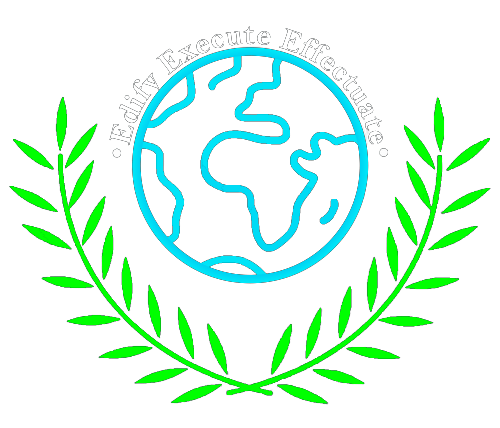By Daksh Rupani
Geopolitics and International Security
Geopolitics and international security are crucial fields of study that investigate the ways in which geography affects political power and how nations seek to safeguard their interests from various threats. These areas are closely interlinked, shaping how countries manage alliances, conflicts, and competition on the global stage. In today’s increasingly interconnected world, understanding these concepts is more important than ever, especially as new global powers rise, climate change accelerates, and technological advancements continue to reshape international relations.
Geopolitics: A Historical Perspective
Geopolitics has played a vital role in statecraft throughout history, with ancient empires like Rome and Persia using geographic advantages to grow their influence. The concept became more formalised in the 20th century when scholars like Halford Mackinder and Nicholas Spykman developed theories linking geographic positioning to global dominance. These ideas continue to be relevant today, as countries like the United States, China, and Russia leverage their geographic strengths in their pursuit of power.
Geopolitical Shifts in the 21st Century
The 21st century has witnessed major shifts in global power dynamics. The unipolar world, characterised by U.S. dominance after the Cold War, is evolving into a multipolar system with several countries vying for global influence. China, in particular, has risen as a significant geopolitical player, challenging U.S. influence through initiatives like the Belt and Road Initiative (BRI), which seeks to enhance trade connections between Asia, Europe, and Africa.
Russia has also played a pivotal role in recent geopolitical events, particularly through its efforts to reassert control over former Soviet territories. The 2022 invasion of Ukraine marked a turning point in modern geopolitics, triggering a global crisis and raising questions about the future of European security and NATO’s capacity to maintain peace on the continent. Russia’s actions have reignited debates about the return of great power competition and the waning of U.S. global leadership.
International Security: Evolving Threats
Alongside geopolitical changes, the nature of international security threats has evolved. While traditional military conflicts between nations persist, new challenges—such as cyber warfare, terrorism, and pandemics—have become pressing concerns. For example, cyber warfare has become a major focus as state-sponsored cyberattacks and hacking incidents have surged. The cyber arms race between major powers like the United States, China, and Russia has escalated the stakes in global security.
The COVID-19 pandemic exposed the world’s vulnerability to non-traditional security threats, revealing weaknesses in international cooperation and health infrastructure. The pandemic’s widespread disruption highlighted that global health security is just as important to international peace as traditional military issues.
Regional Geopolitical Conflicts
The Middle East remains a hotspot for both geopolitical tension and international security concerns. Long-standing conflicts in countries like Syria, Yemen, and Iraq, alongside the Israeli-Palestinian conflict, have contributed to decades of instability. External powers like the United States, Russia, and regional actors such as Iran and Saudi Arabia have become deeply involved, complicating the dynamics of these conflicts. Notably, the rivalry between Iran and Saudi Arabia has influenced proxy wars and political alignments throughout the region.
In another key geopolitical flashpoint, the South China Sea, China’s territorial claims have caused tensions with neighbouring countries, including the Philippines, Vietnam, and Malaysia. The United States has also been active in the region, conducting freedom of navigation operations to counter China’s claims, heightening concerns about the potential for military confrontation between the U.S. and China.
Energy Security and Geopolitics
Energy security plays a crucial role in modern geopolitics. Countries rich in energy resources, such as Russia and Saudi Arabia, have long used their reserves to wield geopolitical influence. Europe’s reliance on Russian natural gas, for instance, made it susceptible to political pressure from Moscow, as evidenced during the energy crisis following Russia’s 2022 invasion of Ukraine. This situation has prompted many European nations to reassess their energy strategies and seek alternative sources to reduce their dependency on Russian supplies.
The shift towards renewable energy is also reshaping geopolitics. As the world moves towards cleaner energy, countries with abundant renewable resources—like solar and wind power—are gaining new geopolitical leverage. However, this transition has also raised concerns about securing the supply chains for critical minerals such as lithium and cobalt, which are essential for renewable technologies like electric vehicles and batteries.
Climate Change and Global Security
Climate change is increasingly becoming a driving factor in both geopolitics and international security. Rising sea levels, extreme weather patterns, and resource scarcity are expected to exacerbate existing conflicts and create new security challenges. For instance, climate-induced displacement is likely to increase migration and heighten competition for resources, which could further destabilize already fragile regions.
Nations such as Bangladesh and island states in the Pacific face existential threats due to rising sea levels. Meanwhile, the Arctic is emerging as a new frontier for geopolitical competition, as melting ice is opening up access to previously untapped natural resources and new shipping lanes. This has sparked competition among Arctic nations, including Russia and the United States, for control of this increasingly strategic region.
Cybersecurity and International Relations
Cybersecurity has become a cornerstone of international security in recent years. Cyberattacks targeting critical infrastructure, including power grids, financial systems, and government institutions, represent significant threats to national security. State-sponsored cyber operations are on the rise, with countries like China, Russia, and North Korea leading in cyber espionage and attacks on other nations.
One high-profile case of cyber conflict was the 2020 SolarWinds hack, attributed to Russian actors, which compromised multiple U.S. government agencies and private companies. This incident underscored the vulnerability of even the most technologically advanced nations and highlighted the urgent need for stronger international cooperation on cybersecurity.
The Future of Geopolitics and International Security
Looking ahead, several key trends will shape the future of geopolitics and international security. The continued rise of China and the relative decline of U.S. influence will likely intensify competition between the two powers. China’s efforts to reshape the global order, particularly through initiatives like the BRI, will challenge the existing Western-led international system.
Technological advancements, including artificial intelligence, space exploration, and cyber capabilities, will open new arenas for geopolitical competition, presenting fresh security challenges. As nations vie for dominance in these areas, the risks of conflict may increase.
Climate change and resource shortages will also exacerbate geopolitical tensions, as countries compete for access to water, arable land, and other critical resources. At the same time, the global community will need to foster cooperation to address shared challenges like climate change and pandemics, which threaten the security of all nations.
In conclusion, geopolitics and international security are deeply interconnected. The evolving global power balance, emerging technologies, and worldwide challenges such as climate change and pandemics will continue to influence how nations interact and compete on the global stage. To navigate these complex dynamics, countries will need to develop innovative strategies that reflect the changing nature of power and security in the 21st century.
Citations
- Allison, G. (2021). The Thucydides Trap and US-China relations. Foreign Affairs.
- Beckley, M. (2022). China’s Century? Why America’s Edge Will Endure. International Security.
- Brands, H. (2021). The Twilight Struggle: What the Cold War Teaches Us about Great-Power Rivalry Today. Yale University Press.
- Brose, C. (2021). The Kill Chain: Defending America in the Future of High-Tech Warfare. Hachette Books.
- Burns, W. (2022). The Back Channel: A Memoir of American Diplomacy and the Case for Its Renewal. Vintage.
- Campbell, K. (2021). The Pivot: The Future of American Statecraft in Asia. Hachette Books.
- Chivvis, C. (2021). The Rise of Political Warfare. RAND Corporation.
- Colby, E. (2021). The Strategy of Denial: American Defense in an Age of Great Power Conflict. Yale University Press.
- Cordesman, A. (2021). The Geopolitics of Energy: Strategic Perspectives. CSIS.
- Doshi, R. (2021). The Long Game: China’s Grand Strategy to Displace American Order. Oxford University Press.
- Ghosh, P. (2022). The Belt and Road Initiative and China’s geopolitical strategy. Journal of International Affairs.
- Gilli, A. (2022). Artificial Intelligence and the Future of Geopolitical Competition. Survival.
- Gopal, P. (2021). The Climate-Conflict Nexus: Security Implications of Climate Change. International Security.
- Graham, T. (2021). The Return of Great Power Rivalry. RAND Corporation.
- Green, M. (2021). By More Than Providence: Grand Strategy and American Power in the Asia Pacific Since 1783. Columbia University Press.
- Hansen, M. (2021). Geopolitics in the Arctic: New Frontiers of Security. Journal of Strategic Studies.
- Jones, S. (2021). Three Dangerous Men: Russia, China, Iran and the Rise of Irregular Warfare. W.W. Norton & Company.
- Kaplan, R. (2022). The Revenge of Geography: What the Map Tells Us about Coming Conflicts. Random House.
- Kissinger, H. (2022). World Order: Reflections on the Character of Nations and the Course of History. Penguin.
- Klare, M. (2022). The Race for What’s Left: The Global Scramble for the World’s Last Resources. Metropolitan Books.
- Kroenig, M. (2021). The Return of Great Power Rivalry: Democracy versus Autocracy from the Ancient World to the U.S. and China. Oxford University Press.
- Liff, A. (2021). China’s Evolving Security Strategy in the Indo-Pacific. International Security.
- Mearsheimer, J. (2021). The Great Delusion: Liberal Dreams and International Realities. Yale University Press.
- Nye, J. (2021). Do Morals Matter? Presidents and Foreign Policy from FDR to Trump. Oxford University Press.
- Rumer, E. (2022). Russia’s Geopolitical Strategy after Ukraine. Carnegie Endowment for International Peace.


